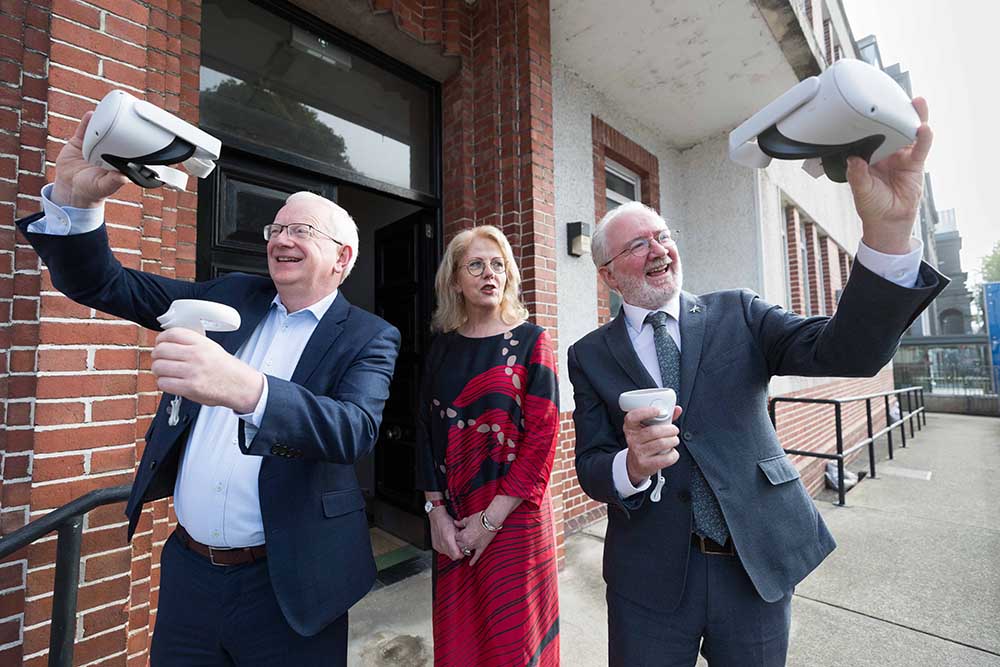A first of its kind course, that will use innovative teaching methods to upskill building professionals in the design and delivery of high quality, energy efficient renovations to traditional buildings, was launched by Minister of State for Heritage & Electoral Reform, Malcolm Noonan TD at the Technological University of the Shannon (TUS).
The Certificate in Energy Renovation of Traditional Buildings will help architects, engineers, building surveyors and Architectural Conservation Officers (ACOs) to specify energy retrofits for traditionally-built buildings and has been hailed as a milestone in the Digital Academy for Sustainable Built Environment (DASBE) project, led by TUS.
Minister Noonan said, “The Certificate in Energy Renovation of Traditional Buildings provides technical approaches and practical advice on energy reduction that is respectful of our heritage values. The approach advocates the conservation principle of ‘minimise intervention’, which is compatible with reducing the carbon-emissions impacts of buildings. The resulting works will also help traditional building users to lower their heating usage and costs. The skills encouraged through this course are critical to the Climate Action Plan, and actions of the Department’s Climate Change Sectoral Adaptation Plan for Built Heritage and Archaeology.”
Highlighting TUS’s proven commitment to sustainability, President of TUS Professor Vincent Cunnane said, “This marks another major milestone in the implementation of the DASBE project. The DASBE initiative has at its core, a strong focus on partnership and collaboration. The Certificate in Energy Renovation of Traditional Buildings is an exemplar of this collaboration with TUS working with the Heritage Council to develop the programme and combine the expertise from both organisations.
The programme also showcases our commitment to innovation in learning combining traditional face to face education with on-line and blended learning approaches. Integrating new digital tools such a Virtual Reality (VR) also pushes the boundaries of how we deliver our programmes.”
CEO of The Heritage Council, Virginia Teehan added, “The Heritage Council is proud to contribute to the government’s Climate Action Plan and Long-term Renovation Strategy through designing this course in partnership with TUS. Our historic buildings have cultural and symbolic meaning for us, but they are also an environmental resource through the carbon that is embodied in their fabric.
We hope that this will ensure that our historical building stock, and their owners and occupants are part of the solutions to our climate crisis. This course will provide skills and competencies for specifiers of energy efficiency works to these buildings to ‘square the circle’ between their historical and environmental values.”

